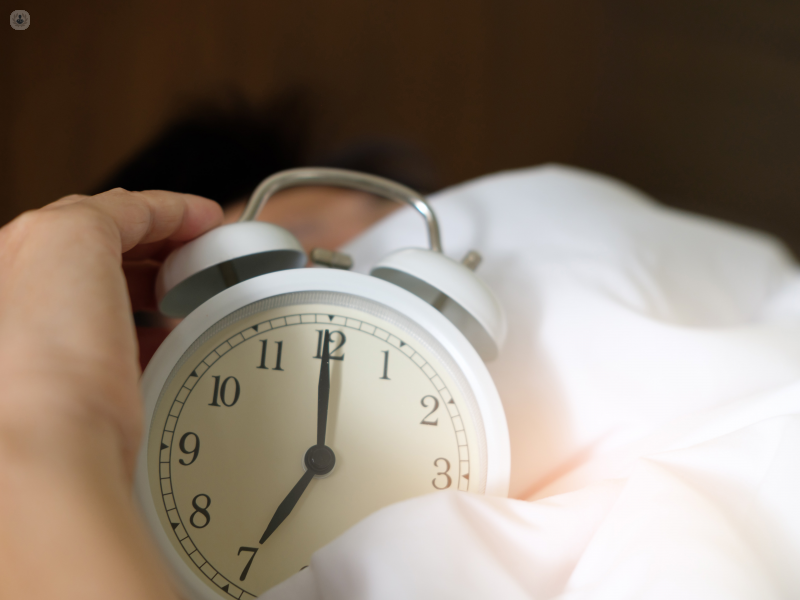When is the best time of day to take your blood pressure medication?
Written by:Some medications work better in the morning, whilst others are more effective after dinner or just before sleeping. So, when is the right time to take your blood pressure tablet and could it be more effective if taken at bedtime instead of the morning?
Professor Melvin Lobo, a pioneering cardiovascular physician, explores the controversial results of a study carried out in northern Spain which found that taking your blood pressure medication at bedtime is much more effective than taking it in the morning. He also offers his perspective on the debate and explains whether we can expect a change in medication guidelines from doctors any time soon.

What is the Hygia Project?
For some time now clinicians have been aware that nocturnal blood pressure (BP) and 24-hour patterns of BP are normalised when patients take their antihypertensive medications at bedtime rather than upon waking up. Importantly, previous studies have demonstrated clearly the safety of taking their medication at bedtime without experiencing any increase in adverse effects.
The Hygia Chronotherapy trial was a randomised controlled study carried out in a primary care setting in northern Spain. It was designed to prospectively evaluate whether taking antihypertensive medication at bedtime exerts better BP control and reduces the risk of cardiovascular disease (CVD) compared to taking all medications in the morning upon awakening. The investigators made extensive use of 24-hour ambulatory blood pressure monitoring (ABPM) at study visits in order to have gold standard data on the effects of medications both on daytime and nighttime BP.
We already know that nighttime BP control is very important, as numerous studies to date have demonstrated that asleep BP is the most sensitive marker of CVD risk when compared to either daytime office blood pressure or 24 hour mean blood pressure obtained from 24-hour ambulatory blood pressure monitoring (ABPM).
What were the results of the study?
This rigorous study evaluated 19,084 patients with an average age of 61 years, half of whom took all their antihypertensive medication at bedtime and the other half upon awakening.
Patients were followed up on average for six years and those who took their antihypertensives at bedtime demonstrated a greater reduction in both asleep BP and nocturnal dipping pattern of BP. In addition, this resulted in a very significant reduction in the risk of CVD events such as CVD death, heart attack, coronary revascularisation, heart failure or stroke.
This risk reduction, which was equivalent to the risk of these events happening being halved, caused controversy and scepticism in the clinical community about the validity of the study, even though its methodology appears sound and the data is robust.
It is important to note that in addition to the above findings, patients who took their medication at bedtime had improved kidney function and cholesterol levels compared to those taking tablets upon awakening without any increase in adverse effects.
When is the best time to take blood pressure medication?
Normal circadian rhythms strongly influence how the body handles medications and as a result, it has been clear for some time that certain drugs - such as calcium channel blockers - are more effective when taken at night. Moreover, peak activity of the renin-angiotensin system (a hormone system that regulates blood pressure and is the target of drugs such as ACE-inhibitors and angiotensin receptor blockers) occurs during sleep and it has been demonstrated that taking such medications at bedtime compared to upon-waking considerably enhances their effects on BP control both during sleep and into the following day.
What factors could have affected the results of the outcomes and were these taken into account?
The use of 24-hour ambulatory blood pressure monitoring (ABPM) throughout the study means that investigators had accurate measures of the effects of the different medication regimens on BP in the randomised groups. Poor adherence to treatment could have confounded the outcomes; however, there was no difference in adherence between the groups.
Will there be any changes in what doctors recommend to their patients with their hypertension medication as a result of this study?
At present, guidance for hypertension management in the UK, Europe and the US has not taken into account the findings of the Hygia Project, which was only recently published. Moreover, a large UK study is currently underway which is also examining the effects of bedtime antihypertensives compared to morning time dosing. The results of which will be available in 2021.
As a result, the UK clinical community, on the whole, is keen to see the results of the TIME study before making firm recommendations to their patients on the potential benefits of bedtime dosing.
From a personal perspective I have decided the following:
- The Hygia Chronotherapy trial was rigorously conducted with impressive findings and no safety signal to suggest that bedtime dosing is dangerous
- Moreover, bedtime dosing is beneficial not only from a CVD outcomes perspective but also resulted in improved kidney function and cholesterol profile
- The most important thing for patients with hypertension is to take their medication regularly and to not skip doses
- I recommend patients to switch to bedtime dosing of antihypertensives and, if it suits them, to continue with this. But if it doesn’t suit them, then they should revert to taking their tablets in the morning
- There should be a greater focus on sleep time BP control in patients with hypertension and this will mandate increased use of ABPM. Hopefully in the near future will see the availability of more patient-friendly wearable devices that are not cuff-based and can measure 24 hours BP unobtrusively
Professor Melvin D Lobo is the Director of Barts BP Centre of Excellence and a consultant in cardiovascular medicine. If you are concerned about your blood pressure, go to his Top Doctors profile and book an e-Consultation with him.


